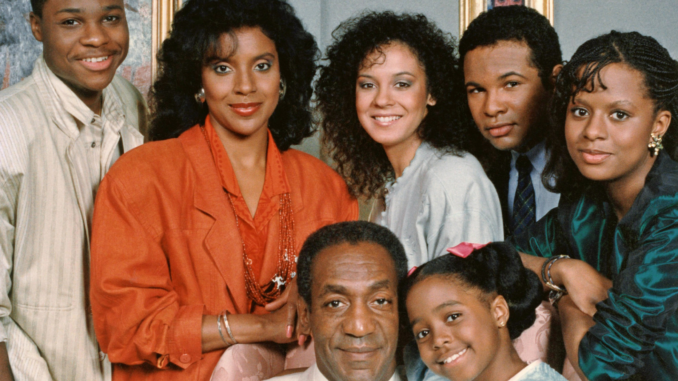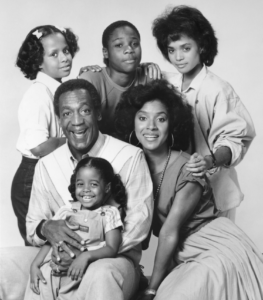
Four decades after the debut of The Cosby Show, scholars gathered to reflect on its profound influence on social discourse in America during a thought-provoking discussion at the John Hope Franklin Center. The roundtable, titled “The Cosby Show at 40: Reflections on Race, Parenting, Inequality, and Education,” brought together students, faculty, and Bill Cosby fans to rewatch iconic clips from the series and engage in conversations about how the show illuminated pressing social issues, from generational divides to corporal punishment.
Airing from 1984 to 1992, The Cosby Show quickly became one of the most influential TV shows of the 80s, topping the ratings for five consecutive years. Mark Anthony Neal, a professor of African and African American studies and director of the Center for Arts, Digital Culture & Entrepreneurship, shared that at its peak, the show averaged 13 million viewers per episode.

Beyond revitalizing the traditional sitcom format, The Cosby Show revolutionized television by presenting an African-American family in a light rarely seen before. The Huxtable family, headed by Bill Cosby and Phylicia Rashad, offered a model of successful, loving parents. While the show subtly tackled issues of race and class inequality, it did so without heavy-handed political statements, as noted by the scholars in the discussion.
“Cosby created a safe space,” said Natalie Bullock Brown, Chair of the Department of Film and Interactive Media at Saint Augustine’s University. “There weren’t any overt political issues or grand statements about race and inequality because it had to be accessible to white audiences, and if it were too didactic, it would alienate Black viewers.”
Though The Cosby Show marked a monumental shift in entertainment and the representation of Black America, it has also faced criticism for not fully capturing the realities of Black life.
Joshua Lazard, C. Eric Lincoln Minister for Student Engagement at Duke Chapel, candidly remarked, “In my middle-class household, we saw The Cosby Show as real, but at the end of the day, it’s a sitcom. It’s not meant to be reality.” He emphasized that the value of the show wasn’t in representing every aspect of Black families, but rather in providing relatable examples for viewers.
“The Black community is not monolithic,” Lazard continued. “We can’t expect one show, with 200 episodes, to represent all 40 million Black people. For me, it was just a TV show, and I related to parts of it.”
Promoting Higher Education
In addition to discussing parenting styles, the panel reflected on The Cosby Show‘s influence on historically Black colleges and universities (HBCUs). At the time, HBCUs were no longer the only educational option for aspiring Black college students, as the rest of the collegiate world had begun to integrate. This shift led some to question the necessity of HBCUs.
However, The Cosby Show played a key role in reaffirming the importance of HBCUs. The show subtly showcased these institutions, influencing an entire generation of viewers to consider them as legitimate and important options. The frequent inclusion of HBCU references, like Cosby’s character wearing sweatshirts emblazoned with the names of these schools, helped bring HBCUs into the mainstream consciousness.
“I always remember him wearing a sweatshirt with the name of some HBCU on it,” Brown recalled. “There was never overt promotion, but it was there, and the exposure to schools that many viewers had never heard of before was invaluable.”
“The Cosby Show at 40: Reflections on Race, Parenting, Inequality, and Education” was the inaugural event hosted by the Center for Arts, Digital Culture & Entrepreneurship at the Duke Consortium on Social Equity.
Join us as we continue to explore the lasting impact of this groundbreaking show, reflecting on its legacy in entertainment, culture, and society.
